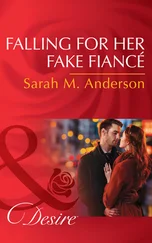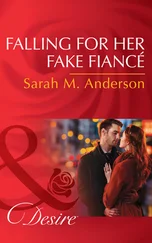Reg

“I remember your aunt’s little éclairs,” said Selena dreamily. “Do you think we could get ourselves invited?”
“Too late,” said Julia. “The service starts at twelve and it’s already twenty past eleven. Even if you drove—”
“Twenty past—? Oh Lord,” said Selena, and left in haste for her conference.
Julia and I finished our coffee and returned to Lincoln’s Inn at a more leisurely pace. We were in time to see a large black Mercedes motorcar draw up opposite the entrance to 62 New Square.
6

IT LOOKED LIKEa funeral procession: four dark-suited men emerged from the long black motorcar and walked silently, in single file, towards the steps leading up to the main doorway.
From the doorway of 63 New Square, Julia and I had no difficulty in observing them. They were led by an elderly gentleman, whom I recognised as the senior partner in a firm of City solicitors — his name, as I recalled, was Mr. Vavasour — and who was, I assumed, the solicitor instructing Selena on behalf of Sir Robert Renfrew. He was followed by Sir Robert Renfrew himself. I concluded that the other two were Sir Robert’s codirectors and potential successors — Edgar Albany and Geoffrey Bolton.
They might have been chosen to illustrate the characteristic differences between those of Saxon and those of Celtic descent. The one I thought of as Saxon was a little over six feet in height, heavily built and of florid complexion, his face egg shaped under thinning fair hair, with blue eyes as round as marbles and a small rosebud mouth curiously inappropriate in the face of a middle-aged man. He walked rather stiffly, always looking straight ahead, as if not wishing to appear in any way impressed by his surroundings. Sir Robert, turning at the top of the steps to make some remark to him, addressed him as Edgar.
By a process of elimination, then, the other must be Geoffrey Bolton. He was several inches shorter than his rival and lighter boned, but giving the impression of a certain muscularity. His complexion was rather pale, his hair and eyebrows very black by contrast. Though I had read in the Scuttle that he was only five years younger than Albany, the resilience of his step and the alertness of his expression made the difference appear greater — at a distance one might almost have taken him for an undergraduate, still eager and curious.
And yet, despite these differences, either of them might reasonably have been described as “a middle-aged man in a City suit”; neither had any physical characteristic so remarkable that some reference to it would necessarily be added to that description; either, in short, might be the man whom the Reverend Maurice had seen emerging from the black Mercedes on its visits to Isabella.
That the mysterious visitor had been one or the other of them I already had little doubt. One of the directors of Renfrews’ had been supplying Isabella with confidential information: he must therefore have been in some form of regular communication with her. If one of them owned or habitually drove a black Mercedes, it would be perverse to imagine that her only regular visitor from outside Parsons Haver had been someone entirely different, driving by pure coincidence a black motorcar of the same expensive and accordingly unusual make.
I had only to discover which of the directors was the owner of the car and I would at once know the answer to the problem which was so much troubling Selena.
There was one obstacle, however, to my reaching an immediate solution: neither Albany nor Bolton had on this occasion actually been driving the car. The driver was a young woman, who remained in the driving seat while the four men descended. Having set down her passengers, she manoeuvred the car into a parking space in the middle of Old Square and set off on foot in the direction of the gateway to Lincoln’s Inn Fields. She walked briskly, as if with some definite objective.
Though there might have been other ways of learning who owned the Mercedes, the Scholar in pursuit of knowledge is impatient of any delay. Bidding a hasty good-bye to Julia, I set off at a similar pace in the same direction.
The young woman went through the gateway and was hidden from my view, but came in sight again when I reached the Fields — a tall, slim figure in a beige raincoat, her fair hair drawn back to the nape of her neck in some kind of knot or chignon. The athletic vigour of her stride began to suggest to me that she intended to walk some distance, perhaps, after all, despite the threatening sky, only for the sake of exercise. It was with some relief that I saw her enter the small Museum on the north side of the Fields founded by the late Sir John Soane.
There is a book, in the entrance hall of the Museum, in which visitors are invited to inscribe their names. I noticed, as I signed, that the name above mine, neatly written, with a fountain pen rather than a ballpoint, was Katharine Tavistock, with an address in Islington.
Not seeing her in any of the ground-floor rooms, I climbed the winding staircase to the first floor, my progress a little impeded by enthusiastic groups of tourists and schoolchildren. I eventually caught up with her in the Picture Room, where she appeared absorbed in the series of paintings by Hogarth known collectively as the Rake’s Progress . Concealing myself behind a conveniently placed statue of Apollo, I was able to study her unobserved while considering how I should approach her.
She was older than I had at first imagined — not less, though perhaps not much more than forty — and too large boned and large featured to be, or ever have been considered, beautiful. She was wearing a severely tailored trouser suit — no doubt expensive, but seeming designed to convey competence and professional standing rather than any interest in allurement. Some quality about her made me dismiss the idea of a matrimonial connection with any of her former passengers; and yet she did not quite look like a person employed solely as a driver. I decided that she must be the personal assistant of whom Selena had spoken and in whom Sir Robert had expressed such absolute trust.
When finally she turned away from the misadventures of Tom Rakewell, I stepped forward, so that for the first time we were face to face. “Miss Tavistock,” I cried. “What an unexpected pleasure — are you playing truant from your office?”
Few people have the self-possession, when warmly greeted by name, to disclaim all acquaintance with the person addressing them: Miss Tavistock did not prove to be one of them. To have forgotten merely my name would have been enough to embarrass her; to have forgotten me entirely, when I so clearly remembered her, was a discourtesy unthinkable to admit. With a blush and an anxious smile, she entered on an explanation for her presence in the Museum.
“Oh no, not really — I had to bring Sir Robert to a meeting in Lincoln’s Inn, and two of the directors, and of course I have to pick them up again afterwards, so I thought I’d look in here and see how poor Tom Rakewell was getting on. I usually do that when we’re in this part of the world.”
“Are you hoping for a happy ending? One day you’ll come in and find a picture showing him reformed, and married to Sarah, and living comfortably and respectably ever after?”
“Well, not quite that. Though as a matter of fact, you know, I think it would be a more realistic ending. Tom’s quite an ordinary sort of person — he’s not really wicked, not wicked on principle like Lovelace or the Vicomte de Valmont. He’s just selfish and greedy and — well, not terribly bright. I’ve never actually met anyone like the Vicomte de Valmont,” she said, sounding as if it were something she rather regretted, “but of course I’ve met lots of people like Tom. And they usually end up being respectable, unless they’re very unlucky.”
Читать дальше














